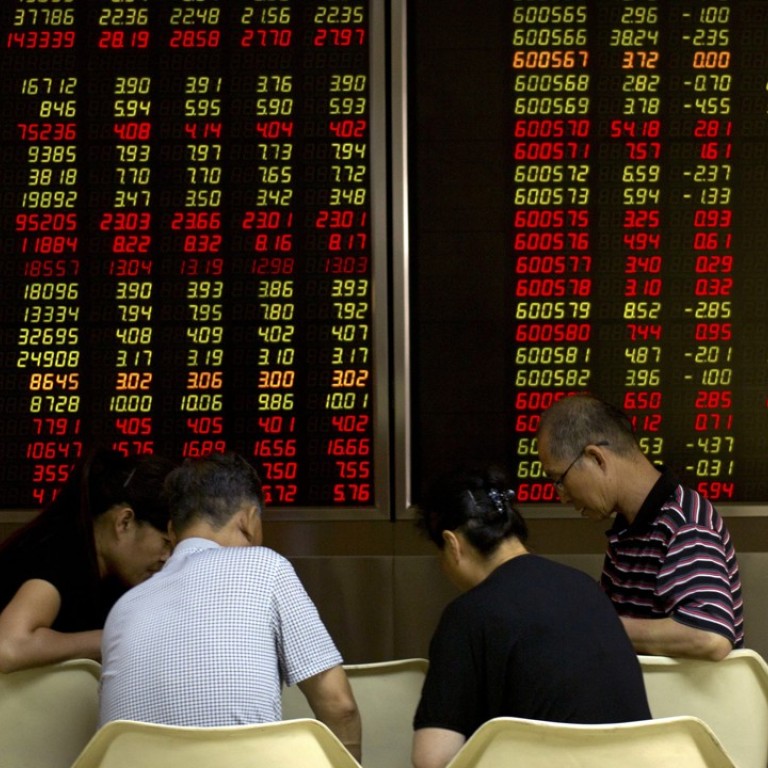
China’s opening up of financial markets won’t be a smooth ride, official says
Beijing is committed to the reform of its financial sector, but external risks and domestics priorities mean the process could be bumpy
The process of opening up China’s financial markets to foreign firms will not be smooth as it is subject to disruption from external factors and the need to protect the domestic economy, a senior government official said on Saturday.
Speaking at a conference at the Renmin University of China in Beijing, Lu Lei, the deputy head of the State Administration of Foreign Exchange, said that reforms would proceed gradually, as domestic concerns would always be prioritised.
“There will be a continuous flip-flop in the process because finance, unlike other sectors, always encounters problems, such as cyclical crises,” he said.
Trade war escalation may trigger financial crisis in China, researchers warn
Despite having to battle a trade war with the United States, China remains under pressure to open up its financial markets. But it is also dealing with rising financial risks at home, including a possible bubble in the online lending sector.
Risk control, particularly within financial system, is one of three priorities outlined by President Xi Jinping for the next three years.
“The basis judgment is that we are still in a risk-prone period,” Lu said. “Although there’s no outbreak of systematic risk, problems are accumulating, while [financial] interconnection and complexity are rising.”
The former head of research at the People’s Bank of China (PBOC) said the financial landscape in China was quite different from 10 years ago.
“Shadow banking, internet finance and blockchain technologies are all penetrating into the financial system,” he said.
Since last year, Beijing has strengthened its regulation of internet finance, an area in which many players were unlicensed but permitted under the state’s push for financial innovation. It has also tightened its controls on cryptocurrency trading and initial coin offerings.
Beijing urged to print more money to help China cope with Donald Trump’s trade war
Lu said that the purpose of opening up its financial markets was not only to provide easier access for foreign firms but also to support the development of its financial sector.
At a meeting in Tianjin recently, Chinese Premier Li Keqiang told foreign businesspeople that finance was a “relatively special sector” and that its opening up should be “orderly”.
“It’s necessary for such a big economy like China to maintain financial stability,” he said.
Although overseas firms have been largely unimpressed with the speed of the opening up process since China joined the World Trade Organisation in 2001, Beijing did announce in April that foreign companies could now hold a majority stake in securities and insurance joint ventures, and that they would be allowed full ownership within three years.
Lu said also that many of the threats to financial markets were international and in an age of increased globalisation largely out of Beijing’s control.
“We have seen a stronger dollar, which historically has had a high correlation with the crises in emerging markets,” he said. “And the US Federal Reserve has just raised interest rates again.”
People's Bank of China hires two new deputy governors in battle against financial risks
China’s central bank did not follow the rate hike move, as it wants to keep the cost of financing low and ensure sufficient liquidity to fuel economic growth. As an alternative it opted to tighten its control of the capital account to prevent large scale outflows.
“The basic lesson we have learned from the past 40 years is that we need gradual reforms and innovation, but resolute measures to tackle risks,” Lu said.
Unlike a decade ago when foreign firms were welcomed as strategic investors to help restructure China’s ailing state banks, some policymakers are concerned they no longer have a role to play in helping to solve contemporary problems such as low efficiency and imperfect competition.
“Now that small- and medium-sized enterprises are facing stubborn fundraising and high cost problems, can they be solved through financial opening up?” Liu Shijin, a PBOC policy adviser, said at a conference in Tianjin last week.

